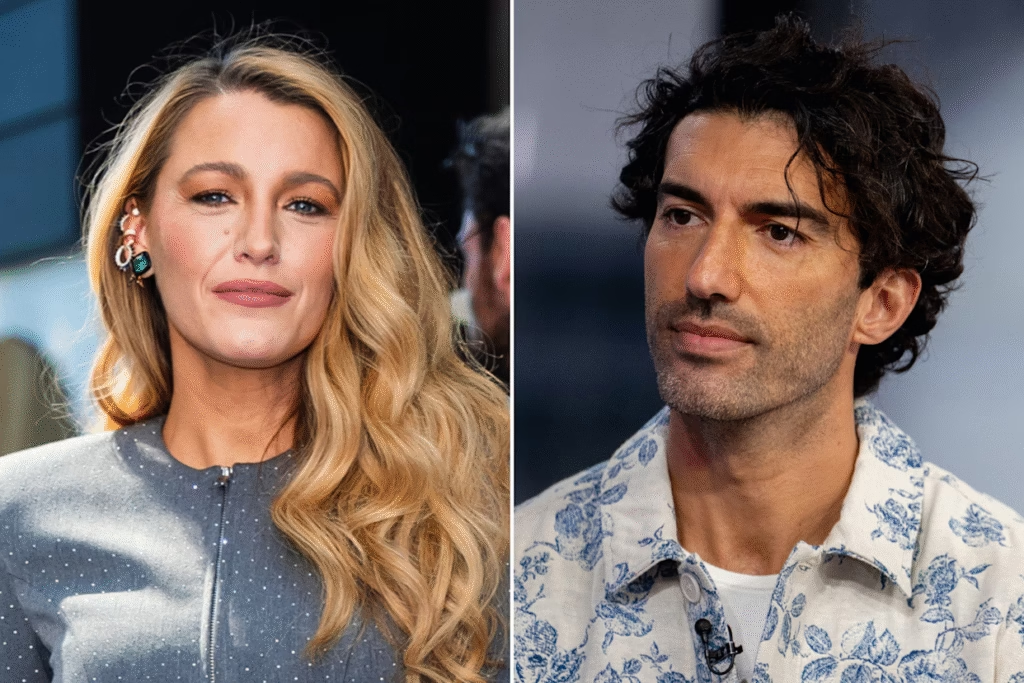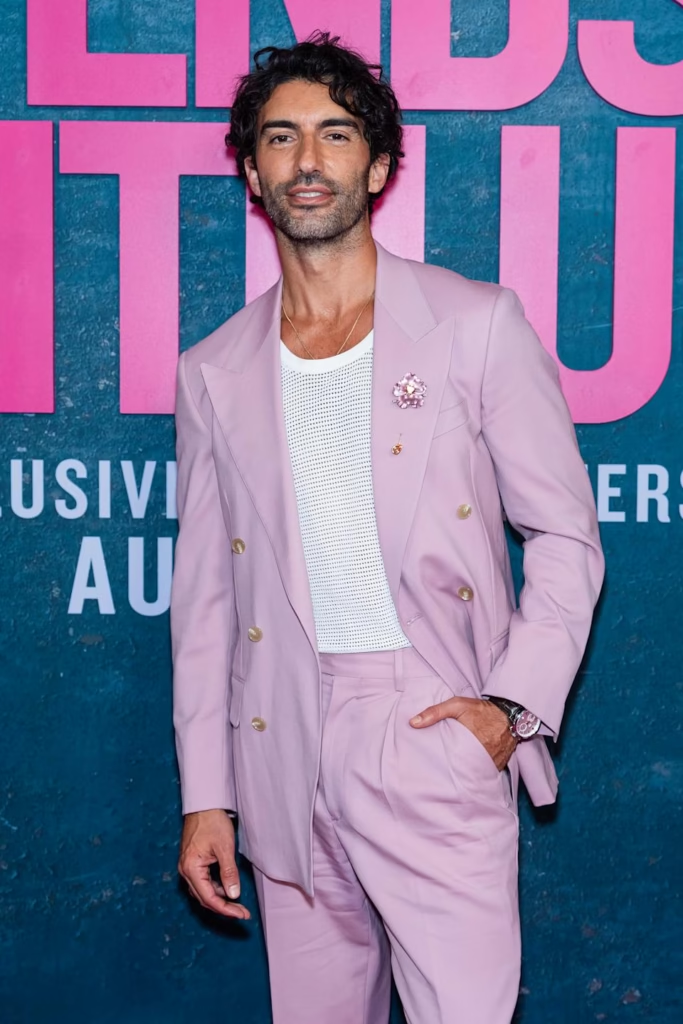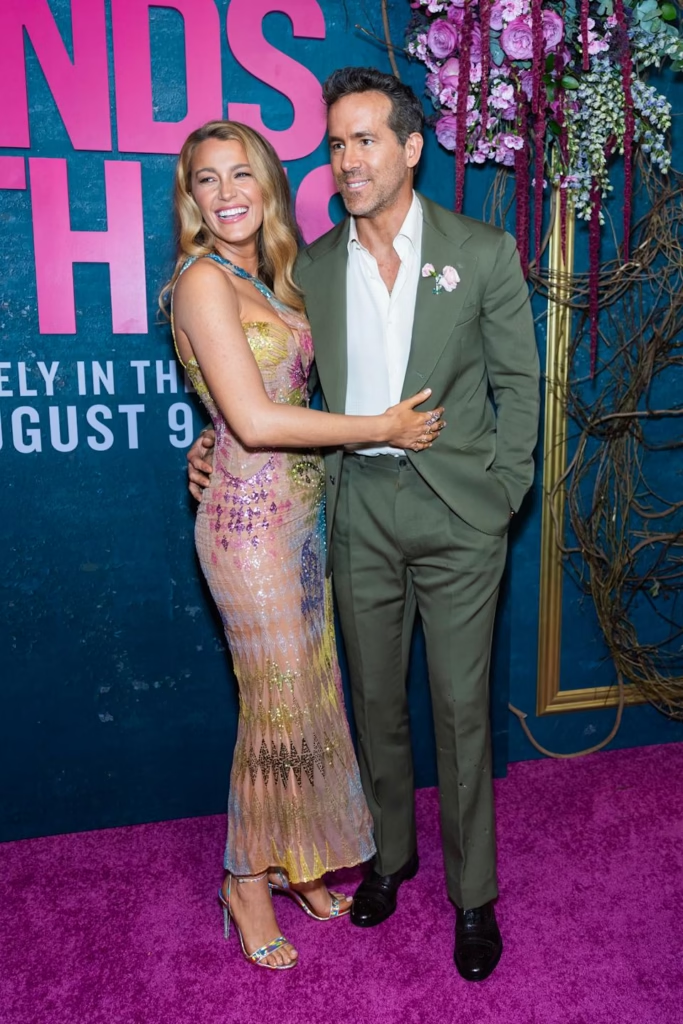
The Blake Lively and Justin Baldoni drama is the he-said-she-said case heard around Hollywood, with accusations flying on both sides.
Lively and Baldoni are entangled in a legal battle over what may or may not have happened on the set of their Colleen Hoover adaptation, It Ends With Us, with Lively accusing her director and costar on the film of sexual harassment and a subsequent retaliatory campaign against her. Since then, the two have communicated through warring legal teams and the press as they head toward their March 2026 court case.
Baldoni has denied all allegations and said that Lively’s claims were false and designed to help Lively gain creative control of It Ends With Us. In response to Lively’s allegations, which were reported by the New York Times and included texts between Baldoni and members of his team, he filed a $400 million countersuit against the actress, her husband Ryan Reynolds, and their publicist Leslie Sloane. The lawsuit alleges defamation and extortion, as well as a separate $250 million defamation suit against the New York Times.But on June 9, Judge Lewis J. Liman threw out Baldoni’s lawsuit, ruling that the statements at the center of the suits were either privileged or lacked the necessary legal basis for defamation. Baldoni’s team may amend certain claims and refile by June 23.
In a statement to Deadline, Lively’s lawyers Esra Hudson and Mike Gottlieb called the ruling “a total victory and a complete vindication” for Lively, as well as Reynolds, Sloane and the New York Times.
“As we have said from day one, this ‘$400 million’ lawsuit was a sham, and the Court saw right through it,” they said. “We look forward to the next round, which is seeking attorneys’ fees, treble damages and punitive damages against Baldoni, Sarowitz, Nathan, and the other Wayfarer Parties who perpetrated this abusive litigation.”
Lively also reacted to the news on June 9, writing in a post on Instagram, “Like so many others, I’ve felt the pain of a retaliatory lawsuit, including the manufactured shame that tries to break us. While the suit against me was defeated, so many don’t have the resources to fight back.”She added that she is “more resolved than ever” to stand for “every woman’s right to have a voice in protecting themselves, including their safety, their integrity, their dignity and their story.”
The actress noted that “there are protections out there,” and linked to “incredible organizations” that offer information and resources.
Meanwhile, on June 10, Baldoni’s lawyer Bryan Freedman said in a statement to People that while the defamation-related claims were dismissed, the court has still invited them to “amend four out of the seven claims” against Lively, which Freedman alleges will “showcase additional evidence and refined allegations.”
He added, “This case is about false accusations of sexual harassment and retaliation and a nonexistent smear campaign, which Ms. Lively’s own team conveniently describes as ‘untraceable’ because they cannot prove what never happened.”It’s all very messy — and with the case headed to court in March 2026, there is almost certainly going to be more that will unfold. But how did It Ends With Us go from being a highly anticipated adaptation of a popular BookTok novel to being one of the entertainment industry’s biggest rifts to date? Here’s what to know.How it all began
Lively and Baldoni starred together in 2024’s It Ends With Us, based on Hoover’s 2016 romance novel about a woman breaking out of the cycle of domestic violence. Baldoni, who initially got the rights to the book through his production company, Wayfarer Studios, also directed the film, while Lively was also an executive producer on the project.When the movie came out in August 2024, fans noticed that Lively and Baldoni — who played a couple in the film — did not do interviews together or pose for photos at the movie’s premiere, fueling speculation that there was a rift between the two.

During the film’s press tour, Lively faced backlash for downplaying the story’s central theme of domestic violence, instead emphasizing female empowerment and the film’s floral aesthetic and even weaving in promotion for her newly launched hair care line. Social media buzz turned critical against the star as old interviews resurfaced that portrayed the actress as catty or rude. Meanwhile, Baldoni — whose brand and podcast Man Enough is centered on untangling himself from toxic masculinity — received praise for including domestic violence as part of the larger conversation about the film.
Blake Lively speaks out
Lively had stayed quiet about her time on the It Ends With Us set and work with Baldoni — until December 2024, when she filed a complaint with the California Civil Rights Department. In her complaint, she claimed Baldoni engaged in sexual harassment and created a hostile work environment during the film’s production.
Her complaint coincided with a New York Times exposé titled “‘We Can Bury Anyone’: Inside a Hollywood Smear Machine,” which detailed Lively’s allegations — along with her legal complaint — and highlighted the alleged retaliatory actions by Baldoni’s team. That included Baldoni encouraging publicists to drum up a smear campaign against the star, which Lively said was the driving force behind the sudden onslaught of negative social media comments about her.Lively was initially met with some public support following the New York Times piece — people like her Sisterhood of the Traveling Pants costars and her Another Simple Favor director Paul Feig spoke out in her favor — but in the weeks after the article, social media sentiment toward the actress remained negative.
Justin Baldoni pushes back
On Dec. 31, 2024, Baldoni filed a $250 million lawsuit against the New York Times. The actor claimed that the article crafted a misleading narrative that damaged his reputation using cherry-picked communications — like, say, a quoted text message that omitted an emoji indicating sarcasm. The New York Times stood by its reporting and in February 2025 filed to dismiss the lawsuit.
On Jan. 16, 2025, Baldoni and his team — including Wayfarer Studios, producer Jamey Heath and PR reps Melissa Nathan and Jennifer Abel — filed a lawsuit in New York federal court. They accused Lively, her husband Reynolds and her publicist Sloane of defamation and other contract violations, while seeking a whopping $400 million in damages. In Baldoni’s version of events, Lively and Reynolds wanted to gain control over the making of It Ends With Us, and, when met with resistance, attempted to damage Baldoni’s reputation with a harassment claim.

In the days after his lawsuit filing, Baldoni’s team released footage from the It Ends With Us set in order to contradict some of Lively’s complaints about harassment. Later, in March, he launched a website with information about the situation for the public to view.
